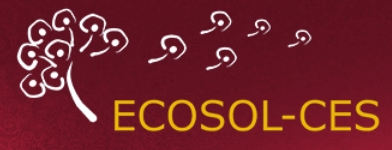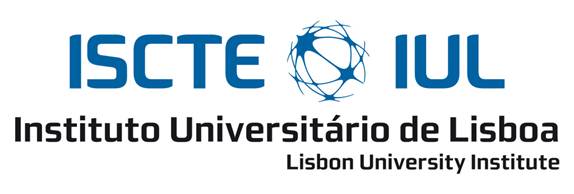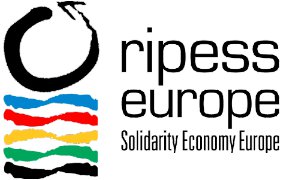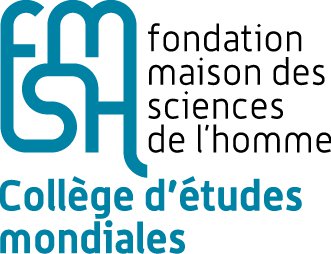CES Summer School
First European Summer School on Solidarity Economy: Is it possible to foster a common agenda for Solidarity Economy in Europe?
4 - 8 September 2017
CES | Lisbon
Programme
September 4th
9:00 to 9:30 - Reception and delivery of support material
9:00 to 12:00 - Introduction to the course and presentation of the participants
12:00 to 14:00 - Lunch
14:00 to 16:30 - Session 1. The Solidarity Economy in Europe: an overview (Jean-Louis Laville).
This opening conference aims to outline the European framework of Solidarity Economy, presenting common points and particularities between different countries. It is a session that raises some of the issues to be addressed in the following days.
16:30 to 16:45 - coffee break
16:45 to 19:00 - Round Table on Solidarity Economy in Latin America and Africa. Coordination of Aline Mendonça and Rogério Roque Amaro.
Given the relevance of Solidarity Economy outside Europe, this roundtable discusses the particular situation of public policies of Solidarity Economy in Brazil, a country where it has achieved high institutional recognition, as well as the emergence of initiatives of Solidarity Economy led by women in several African countries. It is a table joining together researchers and activists in a debate on the relationships between social movements Solidarity Economy initiatives and support entities.
19:30 - Dinner and social program
September 5th
9:00 to 12:00 - Visit to a Solidarity Economy initiative in Lisbon
12:00 to 13:30 - Lunch
13:30 to 16:00 - Session 2. The Solidary Economy and the relationship with the other economies (Pedro Hespanha and Luciane Lucas dos Santos).
This session seeks to contextualize the Solidarity Economy in the scope of Other Economies, showing points of contact, synergy, and difference between them. It problematizes the concept of SE in the European context, as well as the pertinence of the categories usually accepted in Latin America. Taking into account the various local and community experiences with which SE can dialogue in the European case, this session starts from the premise that an epistemological enlargement is not only necessary but urgent.
16:00 to 16:15 - coffee break
16:15 to 17:15 - Round of dialogues 5:30 pm to 6:30 pm - Orientation meetings with specialists
20:00 - Dinner and social program
September 6th
9:00 to 12:00 – Visit to a Solidarity Economy initiative
12:00 to 13:30 - Lunch
13:30 to 16:00 - Session 3. Solidarity Economy and democratic participation (Rogério Roque Amaro and Giovanni Allegretti).
This session discusses the political dimension of Solidarity Economy in the European context. It proposes a reflection on the meaning, effectiveness, quality, and limits of participation in self-management processes. It also discusses processes and methods from which a more participatory democracy can be reinforced.
16:00 to 16:15 - coffee-break
16:15 to 17:15 - Round of dialogues
17:30 to 18:30 - Orientation meetings with the academic staff
20:00 - Dinner and social program
September 7th
9:00 to 12:00 - Visit to a Solidarity Economy initiative
12:00 to 13:30 - Lunch
13:30 to 16:00 - Session 4. Women in Solidarity Economy (Lina Coelho and Luciane Lucas dos Santos).
This session is intended to discuss two main dimensions. The first has to do with the central place of women in the family economy and how this is a particular form of solidarity economy that needs to be addressed and questioned. The second relates to the enlargement of the concept of solidarity economy through a feminist and postcolonial approach to women’s economic practices.
16:00 to 16:15 - coffee break
16:15 to 17:15 - Round of dialogues
17:30 to 18:30 - Orientation meetings with the academic staff
20:00 - Dinner and social program
September 8th
9:00 to 12:00 - Round Table on Solidarity Economy in Portugal. Coordination of Andrés Spognardi and Eber Quiñonez.
12:00 to 13:30 - Lunch
13:30 to 16:00 - Session 5. The Solidarity Economy from the Perspective of Governance (Lars Hulgard and Sílvia Ferreira).
This session discusses the relative institutional invisibility of the Solidarity Economy in Europe and its relation with welfare policies. It problematizes the balance between solidarity economy social innovations and social welfare policies arguing for a new type of institutional reciprocal welfare state.
16:00 to 16:15 - coffee break
16:15 to 17:15 - Round of dialogues
17:15 to 19:15 - Closing conference (Jordi Estivil)
This closing conference aims to raise questions from a synthesis of the main points addressed during the Summer School.
20:00 - Closing dinner





.png)


